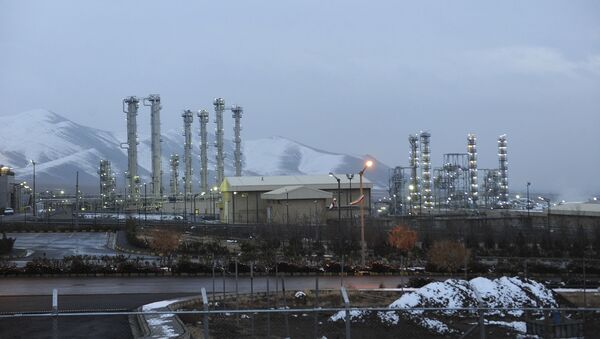Reuters has quoted several unnamed sources as saying that the International Atomic Energy Agency (IAEA) is considering issuing a separate report to berate Iran for allegedly declining to provide access to the sites that are of interest to the UN nuclear watchdog. The IAEA has not commented on the issue yet.
The sources referred to the IAEA’s drive to visit one or more sites mentioned in a trove of data seized by Israeli intelligence agents, which were in turn singled out by Israel’s Prime Minister Benjamin Netanyahu during his speech to the UN General Assembly in 2018.

At the time, Netanyahu claimed that Iran had a secret warehouse in Tehran where it stored large amounts of materials and equipment that were used to pursue a clandestine nuclear programme. The Islamic Republic has vehemently denied the allegations.
“The second report will be on Safeguards issues linked to sites that the IAEA did not get access to. We know of two cases, but we don’t know whether the IAEA will put both in (the report),” one of the sources said.
The UN nuclear watchdog typically releases quarterly reports on what they describe as Iran’s nuclear weapons programme, but on Tuesday the IAEA is expected to issue a special survey in which it will slam Iran’s reluctance to give the go-ahead for IAEA inspectors to visit the sites of interest. Iran has repeatedly underscored that it would never seek to obtain a nuclear weapon, adding that its nuclear programme is purely peaceful.
This time, the source went on, “the general message is: there’s a new sheriff in town”, an apparent nod to the UN nuclear watchdog’s new chief Rafael Grossi, who was appointed in October 2019 after former IAEA Director Yukiya Amano died earlier that year.
It was under Amano that IAEA inspectors visited one site mentioned by Netanyahu, obtaining environmental samples that reportedly showed traces of uranium.
Iran Takes No Further Steps to Violate JCPOA Since January Pledge – IAEA Chief
As for the latest developments, these come after Grossi stated last month that Tehran had taken no further steps toward violating the 2015 Iran nuclear deal, also known as the Joint Comprehensive Plan of Action (JCPOA), following its pledge in early January to do so.
“After the fifth step, there hasn't been any follow-up,” he told the Carnegie Endowment for International Peace in Washington, DC, adding, “of course, they continue to enrich”.
Following the 3 January assassination of Iranian Islamic Revolutionary Guard Corps General Qasem Soleimani by a US airstrike in Iraq, Tehran announced that it would take further measures to rescind its commitments under the JCPOA. The deal lowered economic sanctions against Iran in exchange for its acceptance of very strict limits on nuclear material production and stockpiling.
Tehran gradually began the process of stepping back from the JCPOA in May 2019, exactly a year after US President Donald Trump unilaterally withdrew Washington from the nuclear deal and re-imposed tough sanctions on Iranian industries and political figures.



